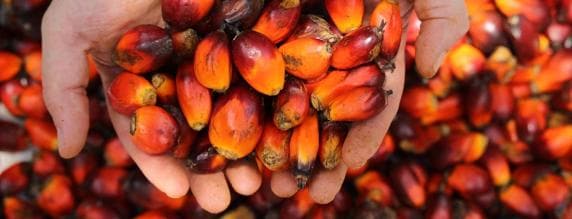FERRERO AND FAIR LABOR PRACTICES WITHIN ITS PALM OIL SUPPLY CHAIN
Background
Global palm oil production is dominated by Indonesia and Malaysia. These two countries together account for around 85 to 90 percent of total global palm oil production.This sector is labor intensive and the palm oil industry is one of the most significant employers in Indonesia and Malaysia.
It is important to be sure that fair labor practices and labor rights are embedded in palm oil production. This explains why there is an increasing consensus for a widely agreed upon standard for fair labor principles in the palm oil sector towards improving the conditions of all workers, including casual, migrant and women workers.
Current Ferrero state of the art
The Ferrero’s Charter launched on 2013 November 11th, also includes specific requirements regarding the working conditions topic in the plantations we source from. It states that Ferrero is committed to making sure that its suppliers comply in “Recognizing, respecting and strengthening the rights of workers” according to defined ILO conventions.
Since then, considerable resources have been dedicated to map Ferrero’s palm oil supply chain in order to identify the major gaps concerning the Charter.
In 2014 our teams, with TFT's support, started visiting priority mills and carrying out documentation verification and field visits in the supplying plantations, covering around 76% of our palm oil supply.
In 2015 Ferrero and TFT followed up on the time-bound action plan and it was found that 3 of the 4 suppliers had taken considerable measures to address the issues found in 2014 including reviewing workers’ conditions according to specific ILO conventions evaluated at the time of our Charter’s launch.
Further discussions with the fourth supplier have been carried out in order to finalize the priorities in the action plan within a defined deadline.
Understanding the current situation is imperative to ensure that the rights of palm oil workers are respected and that they have the opportunity to earn a fair livelihood for themselves and their families.
How Ferrero wants to enhance best fair labor practices in its palm oil supply chain
Ferrero acknowledges the importance of ensuring responsible labor practices in its palm oil supply chain and the Group intends to support an ongoing dialogue with suppliers on responsible palm oil production thus facilitating the Ferrero Charter implementation.
For this purpose, Ferrero has consulted the main documents developed by the principal stakeholders: ILO conventions, RSPO standards, TFT “No Exploitation” Guidelines as well as the "Free and Fair Labor in Palm Oil Production: Principles and Implementation Guidance" released in March 2015 by a wide alliance of international human rights and environmental organizations gathering around a common platform as it pertains to fair labor working conditions. This document provides a common point of reference on what constitutes free and fair labor in palm oil production based on the frameworks enshrined in ILO core conventions and the UN Guiding Principles on Business and Human Rights, and it builds on the existing standard established by the RSPO.
Ferrero endorses the following Principles extracted from “The Free and Fair Labor in Palm oil Production: Principles”:
1. The International Labor Organization (ILO) Core Conventions are upheld.
2. Ethical hiring and responsible employment are practiced.
3. Reasonable production targets, working hours, and leave entitlements are established.
4. A living wage is paid.
5. Worker health and safety and the welfare of workers and their families are prioritized.
6. Access to remedy is guaranteed.
7. Commit to meaningful due diligence, transparency, and disclosure of human rights policies, procedures, and data, with a focus on labor and employment.
In view of the above listed principles we also recommend our suppliers to use the “Free and Fair Labor in Palm Oil Production: Implementation Guidance” which describes the 12 steps companies need to take for operationalizing the Principles.
In endorsing the "Free and Fair Labor in Palm Oil Production: Principles and Implementation Guidance", starting in March 2016, Ferrero will engage and support its suppliers to develop, implement and follow-up a pragmatic and long-term oriented action plan in order to address the issues in their own and third party estates.
For additional information on Ferrero’s palm oil sourcing strategy, please visit Ferrero’s fourth palm oil progress report.












































